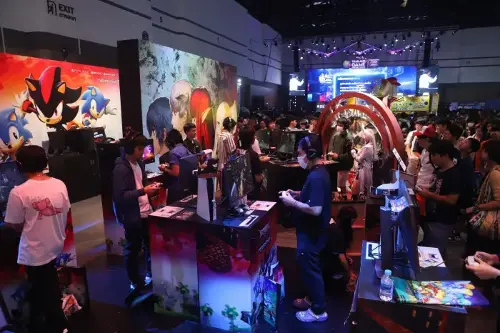
The value of Thailand's computer gaming market is projected to reach 36.1 billion baht this year, up 1.6% from 2024, driven by an increasing number of players, new launches, and promotional campaigns by game service providers.
But an unfavourable economy, shortages of game development skills and funding, including the use of generative artificial intelligence (GenAI) in production, pose a risk to Thai game developers, according to Kasikorn Research Center (K-Research).
This year, international game companies plan to launch new titles, especially expensive "AAA" games, along with new gaming hardware, said the research house.
Game developers are encouraging gamers to spend more on purchasing items, characters, and in-game currency, by offering special limited-edition items.
In addition, e-sports competitions are another factor supporting the growth of the local gaming industry.
However, the growth rate of the games market has slowed down due to a slower increase in the number of gaming accounts.
It is projected that the number of gaming accounts will grow by 1.2% this year.
According to Newzoo data, in 2024 there were over 42 million gaming accounts in Thailand, an increase of more than 14 million accounts, or an average growth of 10% per year since 2023.
Furthermore, the slowing economy has impacted spending on purchases of games and in-game items.
The low growth of the local games market is also attributable to the declining revenue of Thai game developers, who have faced competition from foreign games.
Last year, local game sales dropped 43.6% from 2023.
The Thai gaming market value, 97.8% of which comes from distribution, imports, and copyright management, is largely driven by foreign games.
K-Research projected spending on mobile phone games, which account for 58.3% of the market value, will continue to grow at a rate of 1.8%.
According to Sensor Tower data, last year Thai users' spending on mobile games via in-app purchases grew by 16%, higher than the global average of 4%, and the trend is expected to increase.
The types of games expected to remain popular among domestic players include multiplayer online battle arena games, sports competition games such as football and shooting games, and geolocation-based role-playing games.
Meanwhile, spending in the PC game segment and the console and handheld gaming device segment is expected to grow this year.
The players in these segments are typically those with higher purchasing power and are more likely to competitively play games.
The PC games segment accounts for 26.4% of the gaming market value, while the console and handheld gaming device segment accounts for 15.3%.
K-Research also sees risks in the online games business from the slowing economy, which dampens players' spending.
In addition, funding limitations are a major obstacle for Thai game developers.
Investment in the gaming industry requires significant capital, high wages, and long payback periods, noted the research house.
Securing funding has become even more challenging in a subdued economy, according to K-Research.
The lack of skilled professionals in the Thai gaming industry limits the ability to develop more complex games, such as mid-core and hardcore games which have greater revenue potential.
Thai game developers lack experts in game coding, language skills, marketing, and business perspectives that are needed for Thai game developers to be recognised in foreign markets.
In addition, large international game firms are already using GenAI in various areas, from designing game stories to creating more realistic visuals and analysing data, according to K-Research.
